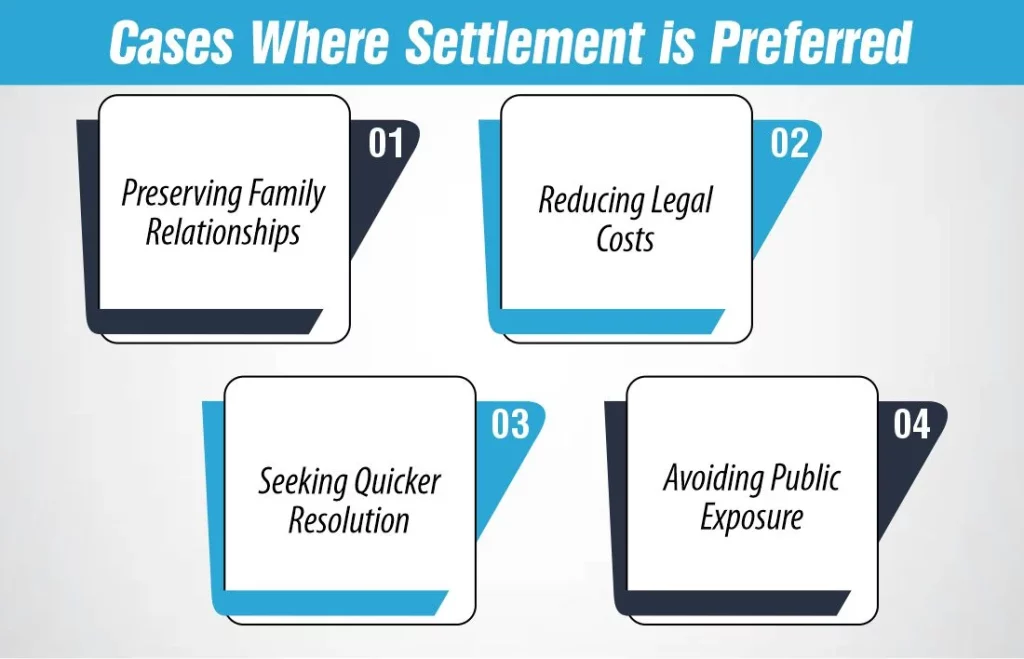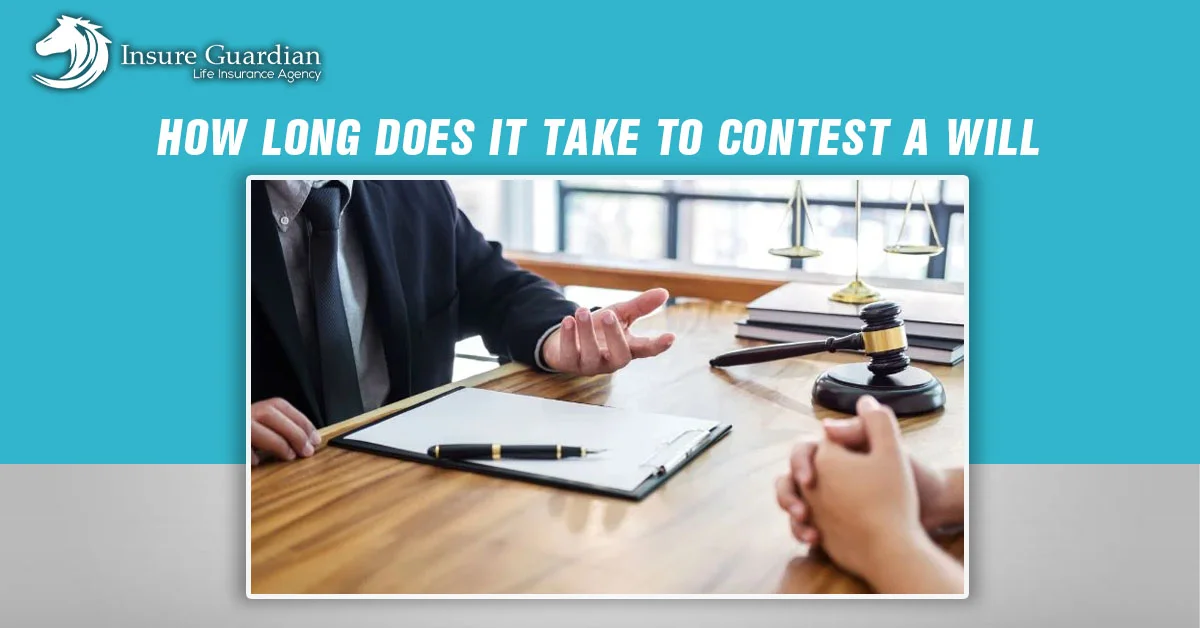Have you ever wondered, “Is there a time limit to challenge a will?” It’s a big question, especially if something about a loved one’s will doesn’t seem right. Whether it’s doubts about its fairness, questions about how it was made, or worries about pressure put on someone, knowing how long you have to speak up is super important.
Let’s examine the key points about how long to contest a will, breaking them down into simple steps to ensure your voice is heard.
Understanding Contesting a Will:
Contesting a will involves legally challenging its validity or the conditions under which it was created. Common reasons for this challenge include doubts about the deceased’s mental capacity when the will was made, concerns over possible undue influence or coercion, allegations of fraud, or issues with how long to contest a will. The goal is often to ensure that the distribution of the deceased’s estate reflects their intentions and adheres to legal standards.
Importance of Understanding the Timeline Involved
Understanding the timeline for contesting a will is crucial because legal systems impose strict deadlines, known as statutes of limitations, for filing a challenge. These time frames can vary significantly depending on the jurisdiction but typically range from a few months to a few years after the will has been submitted to probate. Missing these deadlines can result in losing the right to contest, regardless of the case’s merit. Knowing the timeline helps potential challengers prepare their case adequately, gather necessary evidence, and take action within the legal time limits, ensuring their opportunity to contest is preserved.
Time Limit for Filing a Challenge
Thinking about how long to contest a will? When contesting a will, timing isn’t just important; it’s everything. The legal system grants a six-month window from the will’s probate date for challenges to be filed. This period is crucial for anyone considering a contest to act swiftly and decisively, ensuring their right to dispute the will is not lost to the ticking clock.
Six-month window for filing
The six-month window for filing a will contest is a critical time frame established in many legal jurisdictions. This period typically starts when the will is officially admitted to probate. During these six months, individuals who believe they have valid grounds to challenge the will’s validity must take legal action.
This tight deadline is designed to expedite the settlement of the estate and prevent lengthy legal disputes that can hinder the distribution of the deceased’s assets to the beneficiaries. It’s imperative for anyone considering a will contest to be aware of this window and act promptly to ensure their challenge is filed within this legally mandated period.
Importance of Utilizing This Time for Preparation
The six-month timeframe is critical not just for filing the contest but also for thorough preparation. This period should be used wisely to gather relevant evidence, consult with legal experts, and build a strong case. Proper preparation includes collecting documents, identifying potential witnesses, and understanding the legal basis for the challenge.
Utilizing this time effectively can significantly impact the outcome, enhancing the chances of a successful challenge. Starting early and being methodical in your approach ensures that you can navigate the complexities of estate law with confidence and precision.
Duration of the Case Once Filed
Once a challenge to a will has been officially filed, the duration of the case can vary widely, influenced by several critical factors. Understanding how long to contest a will can help set realistic expectations for the timeline ahead.
Factors Influencing Case Duration
- Willingness of Parties to Fight: Each party’s determination to see the case through can significantly impact its length. If all parties are prepared to battle it out in court, the process can be lengthy, often extending for months or even years. This willingness to fight not only prolongs the case but can also increase the emotional and financial toll on everyone involved.
- Progress Towards Settlement: On the other hand, if the parties are open to negotiation and settlement, the case might conclude much faster. Settlement discussions can lead to a resolution without the need for a full trial, significantly shortening the duration of the dispute. The court often encourages progress toward a settlement, which can be a more efficient and less contentious way to resolve the issues.
- Comparison to Standard Probate Case Timeline: Contest cases often take longer than the standard probate process, which can take anywhere from a few months to over a year, depending on the complexity of the estate and the jurisdiction. The introduction of disputes, the need for evidence gathering, and potential court hearings add complexity and time. While standard probate aims to be a streamlined process for distributing a deceased person’s assets, contested cases introduce variables that can extend the timeline significantly. Understanding this can help manage expectations and prepare for the journey of how long to contest a will.
Reasons for Lengthy Process
Contesting a will can be lengthy, and several factors, often beyond the control of the parties involved, play a critical role in extending the timeline. Understanding these factors can help manage expectations and navigate the process more effectively.
Factors Beyond Control
- Court Scheduling: One of the primary reasons for delays is the court’s schedule. Courts often handle many cases, and finding a slot for your case can take time. The backlog of cases can push your hearing dates further out, extending the overall duration of the will contest process.
- Coordination of Witness Depositions: Gathering witnesses’ testimony is crucial in will contest cases. However, coordinating their schedules for depositions can be challenging. Witnesses may have prior commitments, or their availability may not align with the court’s schedule, leading to delays.
- Expert Opinions and Reviews: Often, cases require the input of expert witnesses to provide specialized knowledge, whether it’s regarding the deceased’s mental capacity or the authenticity of signatures. Obtaining these expert opinions and having documents reviewed can be time-consuming. Experts have their schedules and commitments, and their thorough review process is not something that can be rushed.
Possibility of Expedited Resolution
While contesting a will can be a drawn-out process, certain circumstances may lead to a quicker resolution, particularly through settlement. Understanding when and why settlement might be preferred can help parties reach a more expedited conclusion.

Cases Where Settlement is Preferred:
Settlement is often the preferred route in will-contest cases for several reasons, highlighting the practical and emotional advantages of resolving disputes outside of court. Here are some scenarios where parties might lean towards a settlement:
Preserving Family Relationships:
In cases where the disputing parties are family members, preserving relationships and minimizing emotional distress can be a primary motivator for settlement. The desire to avoid lasting damage to familial ties often outweighs the urge to win a legal battle.
Reducing Legal Costs:
The financial burden of extended legal proceedings can be substantial. Parties may prefer settlement when they realize that the cost of continuing the dispute could significantly deplete the estate’s assets, leaving less for everyone.
Seeking Quicker Resolution:
Litigation can be lengthy, with some cases dragging on for years. Settlement is preferred when parties seek to expedite the resolution, allowing beneficiaries to access their inheritance sooner and move forward.
Avoiding Public Exposure:
Will contests are a matter of public record, which can expose family issues and personal details to public scrutiny. The settlement allows for a private resolution, keeping sensitive confidential matters.
Factors Influencing Settlement Likelihood
Various factors influence the likelihood of settling the contest of a will, each playing a crucial role in guiding the disputing parties towards a resolution without extended litigation. Understanding these factors can help parties gauge the potential for an amicable and expedited resolution.
Financial Implications for the Estate: Realizing that legal fees and court costs can significantly diminish the estate’s value often motivates parties to consider settlement. The longer a contest drags on, the more the estate incurs expenses, leaving less for the beneficiaries. A willingness to protect the estate’s assets can drive parties towards negotiation and compromise.
Beneficiaries’ Willingness to Settle: The beneficiaries’ attitudes and openness to negotiation can heavily influence the outcome. When all parties are motivated to avoid prolonged conflict and are open to finding common ground, settlement becomes a highly viable option.
Bottom Lines:
In wrapping up, how long to contest a will is a process filled with legal intricacies, from understanding valid reasons for a challenge to navigating strict timelines. It’s a path that requires a strong emotional resolve and a clear understanding of the law. This is where the expertise of legal professionals becomes invaluable.
They bring clarity to complex situations, offer strategic advice tailored to your specific circumstances, and guide you through every step of the process. Remember, contesting a will is not just about the legal battle; it’s about ensuring fairness and honoring the true intentions of loved ones. Seeking the counsel of experienced legal experts can make all the difference, providing the support and guidance needed to navigate this challenging process with confidence and peace of mind.
If you need expert guidance, don’t hesitate to contact us. Our team is here to provide the assistance and support you need to navigate this challenging journey with confidence.
FAQs
Which of the following could lead to a will contest?
A will contest could be sparked by concerns over the testator’s mental capacity, evidence of undue influence or coercion, suspicions of fraud or forgery, improper execution, or the discovery of a more recent will.
How hard is it to contest a will in Texas?
Contesting a will in Texas can be challenging. Within strict legal deadlines, solid evidence must be provided to support claims such as undue influence, lack of capacity, or improper execution.

Meet Haider, our expert Life Insurance Content Writer and Editor. With a passion for clarity, he simplify the complex world of life insurance, delivering informative, polished content tailored to our clients’ needs.







